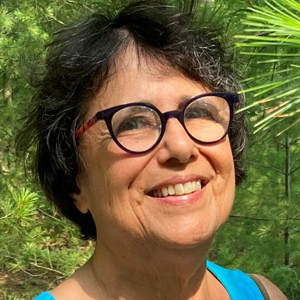Join the conversation on how cells talk to themselves and to each other
Cellular membranes are key to the compartmentalization of cellular processes and serve as platforms for the assembly of protein signaling complexes. Most human diseases can be traced to defects in signal generation and decoding caused by altered interaction of proteins with cellular membranes.
The unique lipid composition of different membranes defines organelle identity and is critical for protein–membrane interactions. How cells generate and maintain the specific lipid composition of their organelles against complex and highly dynamic vesicular transport pathways is a fundamental question at the intersection of lipid and cell biology. Moreover, nonvesicular lipid transfer and contact sites formed between various organelles, as well as transient spikes in signaling lipids, are critical for cell signaling and homeostasis.
The theme of this session is how to respond to these important questions, and the program features expert speakers covering a variety of exciting topics within this theme.
Keywords: lipid transfer proteins, membrane contact sites, lipid compartmentalization, lipid dynamics, cell signaling
Who should attend: both experts and novices who recognize that not all lipids are bad for your health — and also people who are interested in proteins, as we understand that membranes without proteins and proteins without membranes would not support life
Theme song: "Come Together" by the Beatles, the first allusion to the importance of organelle contact sites
This session is powered by Palmolive — chasing lipids since 1898.
Talks
- Regulation of PIP2 homeostasis at ER–plasma membrane contacts by Nir proteins — Jen Liou, University of Texas Southwestern Medical Center
- Roles for interorganelle contacts in organizing metabolism — W. Mike Henne, University of Texas Southwestern Medical Center
- Systematic analysis of membrane contact sites — Maya Schuldiner, Weizmann Institute of Science
- Novel pathways of intracellular membrane lipid transport and neurodegenerative diseases — Pietro De Camilli, Yale University School of Medicine and Howard Hughes Medical Institute
- Chemical tools for understanding phospholipase D signaling — Jeremy Baskin, Cornell University
- Control of the cellular lipid landscape by inositol lipids — Tamas Balla, National Institutes of Health
- Volume electron microscopy analysis reveals a new type of membrane junction required for mixing of parental genomes after fertilization — Orna Cohen–Fix, National Institute of Diabetes and Digestive and Kidney Diseases
- Automatic whole cell organelle segmentation in volumetric electron microscopy — Aubrey Weigel, Howard Hughes Medical Institute Janelia Research Campus
- Regulation of membrane dynamics via phosphoinositide signaling cascades — Lois Weisman, University of Michigan
- Novel mechanisms in phosphoinositide turnover — Raghu Padinjat, National Centre for Biological Sciences
- Regulation of COPII dynamics in development and disease — Anjon Audhya, University of Wisconsin–Madison
- Intracellular trafficking during neutrophil chemotaxis — Carole Parent, University of Michigan
Learn more
Check out all ten thematic symposia planned for the 2022 ASBMB annual meeting:
Enjoy reading ASBMB Today?
Become a member to receive the print edition four times a year and the digital edition monthly.
Learn moreFeatured jobs
from the ASBMB career center
Get the latest from ASBMB Today
Enter your email address, and we’ll send you a weekly email with recent articles, interviews and more.
Latest in Science
Science highlights or most popular articles

Avoiding common figure errors in manuscript submissions
The three figure issues most often flagged during JBC’s data integrity review are background signal errors, image reuse and undeclared splicing errors. Learn how to avoid these and prevent mistakes that could impede publication.

Ragweed compound thwarts aggressive bladder and breast cancers
Scientists from the University of Michigan reveal the mechanism of action of ambrosin, a compound from ragweed, selectively attacks advanced bladder and breast cancer cells in cell-based models, highlighting its potential to treat advanced tumors.

Lipid-lowering therapies could help treat IBD
Genetic evidence shows that drugs that reduce cholesterol or triglyceride levels can either raise or lower inflammatory bowel disease risk by altering gut microbes and immune signaling.

Key regulator of cholesterol protects against Alzheimer’s disease
A new study identifies oxysterol-binding protein-related protein 6 as a central controller of brain cholesterol balance, with protective effects against Alzheimer’s-related neurodegeneration.

From humble beginnings to unlocking lysosomal secrets
Monther Abu–Remaileh will receive the ASBMB’s 2026 Walter A. Shaw Young Investigator Award in Lipid Research at the ASBMB Annual Meeting, March 7-10 in Washington, D.C.

Chemistry meets biology to thwart parasites
Margaret Phillips will receive the Alice and C. C. Wang Award in Molecular Parasitology at the ASBMB Annual Meeting, March 7-10 in Washington, D.C.


